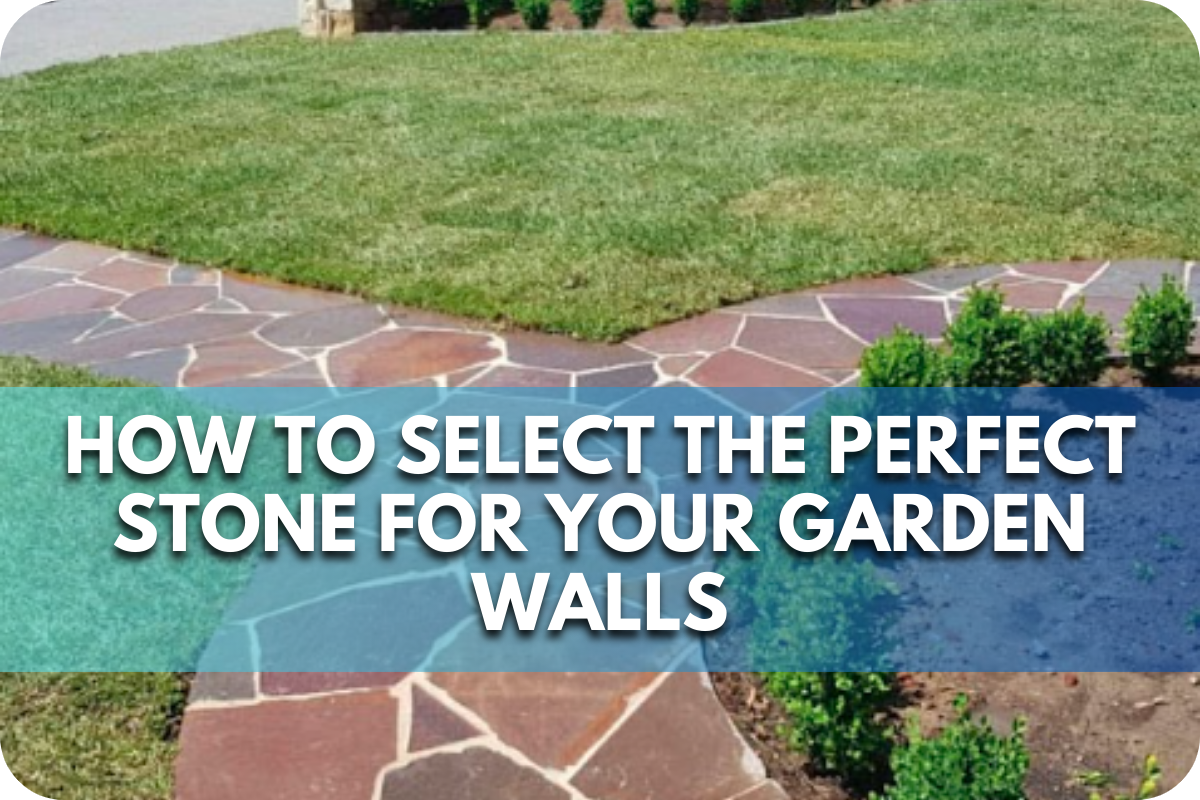
Building garden walls is a popular way to add structure and beauty to outdoor spaces, but selecting the right stone can be daunting.
With so many options available, it’s easy to end up with a material that doesn’t compliment your landscape or withstand weather conditions, leading to costly repairs or replacements down the line.
This article will guide you through the process of choosing the perfect stone for your garden walls, ensuring a long-lasting and visually appealing addition to your outdoor haven.
Types of Stone for Garden Walls
When selecting the perfect stone for garden walls, consider durability, aesthetics, and maintenance. Natural stone creates garden walls with undeniable elegance and timeless appeal. Here’s a look at some popular choices:
- Limestone: Offers a warm, earthy aesthetic with varied tones of cream, tan, and grey. Its subtle texture and natural variations lend a classic charm.
- Sandstone: Provides a rustic feel with colours ranging from tan and brown to warm reds and oranges. Sandstone’s layered appearance adds depth and visual interest.
- Granite: The champion of durability, granite offers incredible strength and weather resistance. Its speckled appearance, in shades of grey, pink, and even black, offers a bolder, more modern look.
- Quartzite: A metamorphic rock formed from sandstone, quartzite is incredibly hard and durable. It boasts a wide array of colours and patterns, often resembling marble.
- Travertine: This porous limestone is known for its distinctive pitted surface and warm, earthy tones. It’s a popular choice for creating rustic or Tuscan-inspired garden walls.
Factors to Consider When Choosing the Perfect Stone for Your Garden Walls
When selecting stone for garden walls, consider these crucial factors to ensure both functionality and aesthetic appeal:
- Durability: Choose stones that can withstand the elements, especially in an area with extreme weather. Stones should resist frost, heat, and water damage to maintain structural integrity over time.
- Maintenance: Some stones require more maintenance than others. Porous stones may need regular sealing to prevent staining and water absorption. If you prefer a hands-off approach, opt for low-maintenance stones.
- Aesthetic Compatibility: The stone should complement your home’s existing landscape and architectural style. Consider the stone’s colour, texture, and shape to ensure it harmonises with your garden and house exterior.
- Size and Scale: The size of the stones should align with the scale of the wall and the garden. Larger stones can provide a more imposing look, while smaller stones offer more design flexibility and are easier to handle during construction.
- Budget: Stone prices vary widely based on type, availability, and transport costs. Set a realistic budget that includes the cost of the materials and installation.
Where to Source Your Stone
When sourcing stone for garden walls, choosing reputable suppliers is key to ensuring quality and durability. Here are three top stone suppliers in Australia:
- Splendour in Stone: As a premier supplier, Splendour in Stone offers an extensive range of high-quality stones suited for garden walls. Known for their reliability and excellent customer service, they provide a diverse selection that can accommodate any design preference and architectural style.
- Eco Outdoor: Specialising in natural stone, Eco Outdoor is renowned for its environmentally friendly and sustainable practices. They offer various stone types, including sandstone, limestone, and granite, which are ideal for creating striking and durable garden walls.
- Stone Hub: Stone Hub is a reputable Australian supplier known for its wide selection of premium natural stones. They cater to residential and commercial projects, providing stones perfect for garden walls and other outdoor features.
Designing Your Stone Garden Wall
Designing your stone garden wall involves careful planning and aesthetic considerations to ensure it enhances your outdoor space. Here are tips for creating an effective stone garden wall:
- Determine the Purpose: Decide whether your wall will primarily serve a decorative purpose, provide privacy, or require structural stability to prevent soil erosion. This decision will influence the type of stone and construction techniques.
- Choose the Right Stone: Select a stone that complements your garden and home’s existing colours and textures. Consider using a variety of stone sizes for a more natural look or uniform blocks for a contemporary design.
- Plan the Layout: Sketch the wall layout, considering its height and shape. Curved walls can soften the landscape, while straight walls provide a formal boundary. Ensure the design fits naturally into your garden’s layout.
- Construction Technique: Dry stacking, where stones are laid without mortar, offers a traditional and natural appearance but may not suit high or load-bearing walls. Mortared walls provide greater strength and stability and are suitable for taller or structural walls.
- Incorporate Features: Consider integrating seating, planters, or lighting features. These can add functionality and appeal, making the wall a garden’s focal point.
- Professional Advice: For structural walls or complex designs, consult a landscape architect or a stone mason to ensure the wall is safe and aesthetically pleasing.
Budget and Maintenance
Selecting the perfect stone for your garden walls involves balancing initial costs and ongoing maintenance. Understanding both can save you from unexpected expenses and ensure your garden remains stunning for years.
When setting your budget, consider the price of the stone itself and installation costs. Natural stones like granite and limestone are durable but can be pricier. Here are the Before You Buy Stone: Must-Ask Supplier Questions.
Maintenance is another crucial consideration. Natural stones require regular cleaning and occasional sealing to maintain their appearance and structural integrity.
For instance, sandstone needs frequent sealing to prevent weather damage, while more durable granite still benefits from periodic sealing to protect against stains.
In contrast, engineered stones typically require less maintenance, making them an excellent option for those seeking a low-maintenance solution.
Conclusion
Choosing the right stone for your garden walls is pivotal in creating a lasting, beautiful landscape. Consider your budget, the stone’s maintenance needs, and the overall aesthetics. Visit Splendour In Stone today to explore premium stone options that blend functionality with elegance. These options ensure that your garden walls are stunning and enduring. Make your vision a reality!
More To Explore

Stone Accents: Adding Charm to Modern Interiors with Natural Stone
Modern interiors seek a balance of style, durability, and uniqueness. Natural stone accents are a game-changer, adding timeless elegance and character to any space. As

Natural Stone Features That Will Transform Your Living Room
Natural stone elevates any living room with elegance, texture, and timeless appeal. Its versatility allows it to enhance both modern and traditional spaces. From stone


